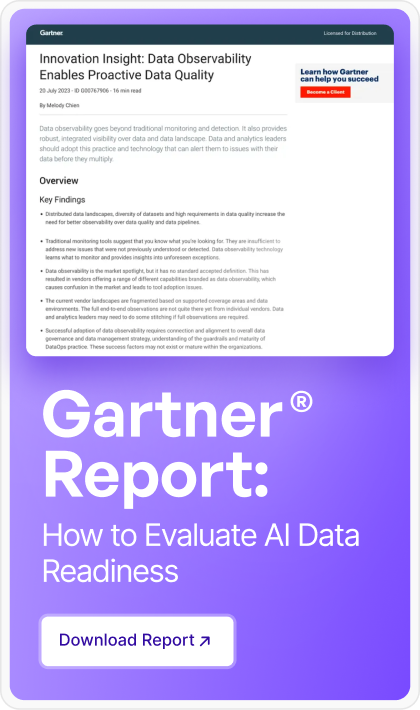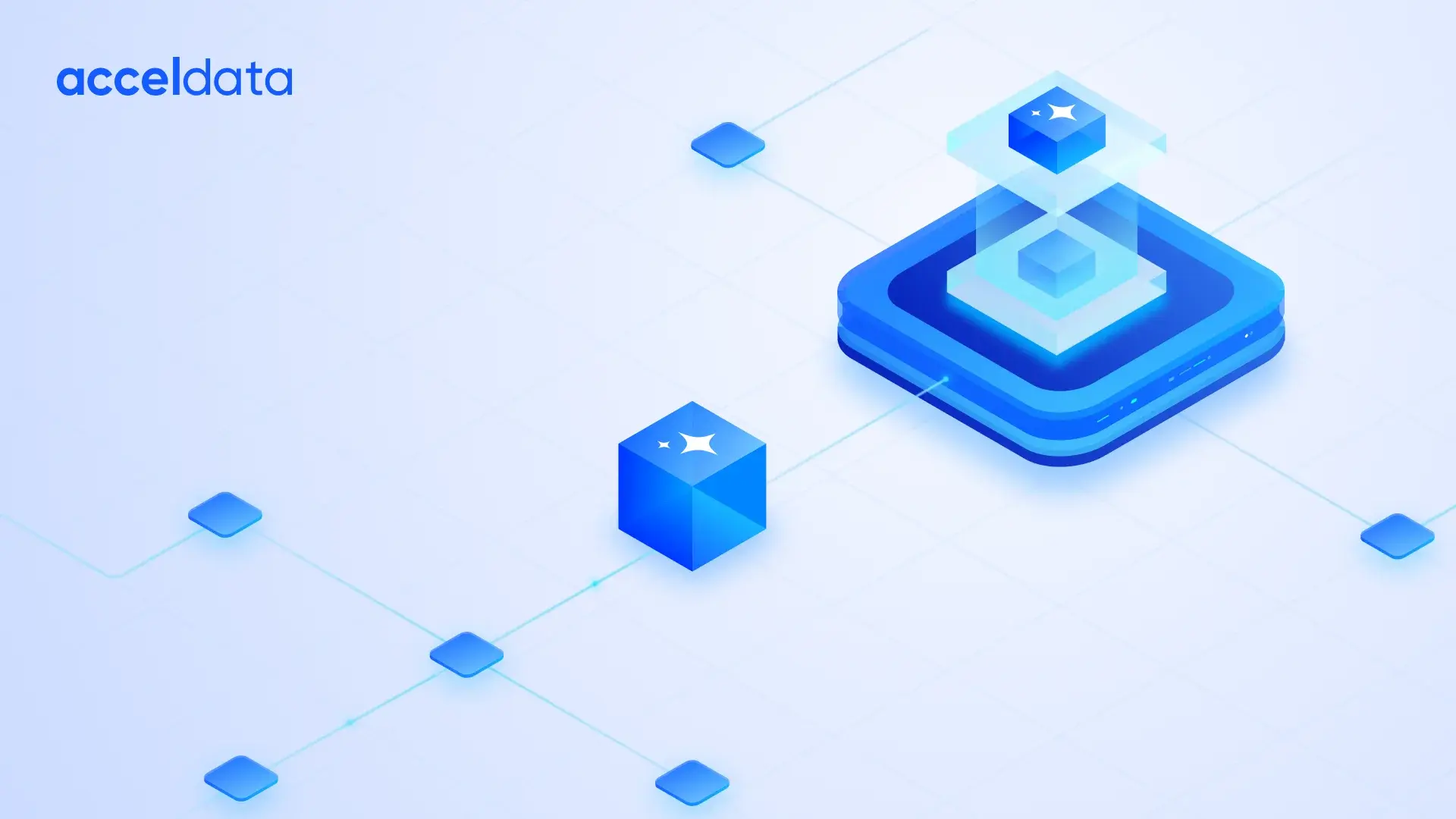Growth in reliance on data science and machine learning for strategic decision-making has made it increasingly complex to manage large, constantly evolving datasets. Efficiently managing and tracking data lifecycles is now the backbone of success in several industries.
When it comes to data, what you don't track can cost you. Enter data versioning, a systematic approach to tracking and managing changes in datasets, data models, and schemas over time.
Data versioning is not merely a technical advantage but a business imperative. With such transformative potential, data versioning is rapidly becoming a critical practice for organizations aiming to maintain data integrity and operational excellence.
What Is Data Versioning?
Data versioning refers to the systematic management and tracking of changes made to datasets, data models, and schemas over time. Akin to version control in software development, data versioning enables teams to monitor data modifications, maintain historical records, and ensure reproducibility in data-driven projects.
At its core, data versioning allows organizations to:
- Trace data lineage, clearly understanding a dataset’s origin and transformation.
- Track changes and identify when and how data has been modified.
- Manage schema evolution, ensuring consistency when updates are made to data structures.
Key Uses of Data Versioning
Data versioning addresses critical challenges in managing evolving datasets, ensuring consistency, and enhancing team collaboration.
Here are some of the most impactful use cases where data versioning transforms the way organizations manage and handle data:
1. Data science and machine learning
Data versioning ensures reproducibility and consistency in data science and machine learning workflows. By versioning datasets and models, teams can:
- Reproduce experiments with identical data inputs and configurations.
- Track changes in datasets and models to understand their impact on outcomes.
- Facilitate collaboration by sharing standardized data and results across teams.
2. Collaboration across teams
Modern data projects often involve cross-functional teams, including data engineers, analysts, and scientists. Data versioning provides a single source of truth, eliminating conflicts caused by simultaneous edits or outdated data versions.
3. Data recovery and debugging
Data versioning is an insurance policy against errors and accidental overwrites. By keeping a history of changes, teams can quickly revert to a previous version when things go wrong.
This capability is particularly useful in debugging, as it helps identify when and where issues were introduced in the data pipeline.
4. Regulatory compliance
Organizations must comply with regulations such as GDPR and HIPAA, which require detailed records of data collection, processing, and storage.
Data versioning ensures compliance by:
- Providing transparent data lineage for audits.
- Tracking changes to datasets for accountability.
- Facilitating accurate reporting with historical data versions.
Benefits of Data Versioning
Data versioning offers several benefits that enhance data integrity, operational efficiency, and decision-making capabilities.
Organizations leveraging this practice experience the following advantages:
- Enhanced collaboration: Data versioning provides a unified framework for teams to collaborate on data projects without fear of overwriting or duplicating work. By maintaining a single source of truth, versioning ensures all stakeholders work with the most accurate and up-to-date data.
- Reproducibility: The ability to reproduce experiments or workflows reliably is one of the core strengths of data versioning. Organizations can recreate results with identical inputs and configurations, and every dataset change can be tracked and documented.
- Error mitigation: Versioning eliminates data corruption risks, accidental overwrites, or mismatches in schema evolution. Teams can quickly revert to previous versions to resolve errors and ensure project continuity.
- Auditability and compliance: Data versioning simplifies regulatory compliance by maintaining detailed data changes and lineage records. This ensures transparency during audits, thus reducing the risk of penalties for non-compliance.
Challenges in Implementing Data Versioning and its Solutions
Data versioning offers numerous benefits; however, its implementation comes with its own set of challenges.
The following challenges can be mitigated with the right strategies and tools:
1. Complexity in setup
Challenge: Integrating data versioning systems into existing workflows can be daunting, especially for organizations with legacy systems or large, distributed datasets.
Solution: Leverage user-friendly tools that integrate seamlessly with existing version control systems such as Git. Additionally, conducting training sessions for teams ensures smoother adoption and usage.
2. Storage and cost implications
Challenge: Versioning large datasets, especially in industries such as media and healthcare, can drive up data storage demands and associated costs.
Solution: Implement compression techniques and use cloud-based storage solutions that offer cost-effective scalability.
3. Learning curve for teams
Challenge: Teams unfamiliar with version control concepts may find it difficult to adapt, leading to inconsistent practices and potential errors.
Solution: Start small by introducing version control for a few critical datasets. Pair this with structured onboarding sessions, documentation, and tutorials to help teams understand and embrace the process.
4. Managing schema evolution
Challenge: Maintaining consistency across multiple versions becomes complex as data models and schemas evolve.
Solution: Adopt tools that support schema evolution tracking, which ensures compatibility across different versions. Establish clear governance policies for updating schemas, including automated validation checks.
5. Ensuring data lineage visibility
Challenge: Tracking the entire data lifecycle to understand its lineage is crucial, particularly in multi-stage workflows, where data passes through various transformations.
Solution: Use platforms such as Acceldata to provide detailed visibility into data lineage. Such tools automate tracking and flag data anomalies in real time, ensuring data integrity.
Best Practices for Data Versioning
Organizations should follow proven best practices to maximize the value of data versioning and address its challenges effectively.
The following guidelines ensure efficient implementation, smooth workflows, and long-term success:
- Select right tools: Choosing tools tailored to your organization's needs is essential. Such tools offer reliable versioning capabilities, ensuring seamless integration into existing workflows.
- Integrate versioning early: Introducing versioning at the start of data projects reduces inconsistencies and ensures all stakeholders are aligned with proper practices.
- Automate processes: Data automation minimizes manual errors and increases efficiency. Incorporating versioning into CI/CD pipelines ensures consistent change tracking without disrupting workflows.
- Document changes thoroughly: Maintaining comprehensive documentation for each data version, including changes, contributors, and justifications, fosters collaboration and transparency.
- Train teams on versioning practices: A well-informed team is crucial for successful implementation. Conduct training sessions on versioning principles, tools, and workflows to ensure consistent adoption across teams.
- Monitor and maintain data lineage: Establishing clear data lineage tracking helps organizations understand data transformations and dependencies, which is crucial for auditing and troubleshooting.
Future of Data Versioning
Data versioning is poised to evolve alongside technological advancements, driven by the rising reliance on data-driven processes across industries.
Key trends include:
- Integration with AI/ML workflows: Versioning will become integral to machine learning operations (MLOps), ensuring reproducibility and seamless collaboration in AI-driven projects.
- Improved scalability: Tools will focus on incremental versioning to handle larger datasets while minimizing storage costs, thus catering to the rising demand for scalability.
- Enhanced automation and governance: Automating schema evolution tracking and real-time change monitoring will streamline workflows, while data governance frameworks will ensure data compliance with emerging data regulations.
- Cloud-native integration: With cloud adoption rising, versioning tools will increasingly integrate with cloud-native architecture for real-time tracking in distributed environments.
Empowering Data Versioning with Acceldata
Data versioning is no longer a luxury but a necessity in modern data management. It is a critical practice for modern organizations, enabling them to track changes, maintain data lineage, and manage schema evolution effectively.
Despite challenges such as storage costs and team learning curve, best practices such as early integration, automation, and the right tools can maximize its benefits. Acceldata, a leader in data observability, provides a comprehensive observability platform to address these challenges.
Acceldata enables organizations to precisely monitor, manage, and optimize their data workflows by offering end-to-end visibility into data pipelines and changes. Its powerful capabilities include real-time lineage tracking, anomaly detection, and streamlined data versioning processes, ensuring both compliance and operational excellence.
Ready to transform your data versioning strategy? Schedule a demo with Acceldata today and experience the future of data management.





.webp)

.webp)







.webp)
.webp)


